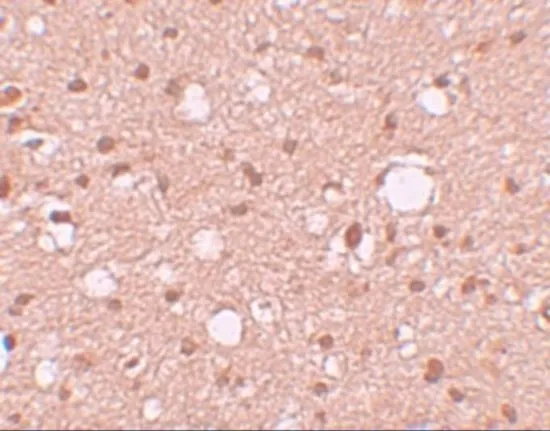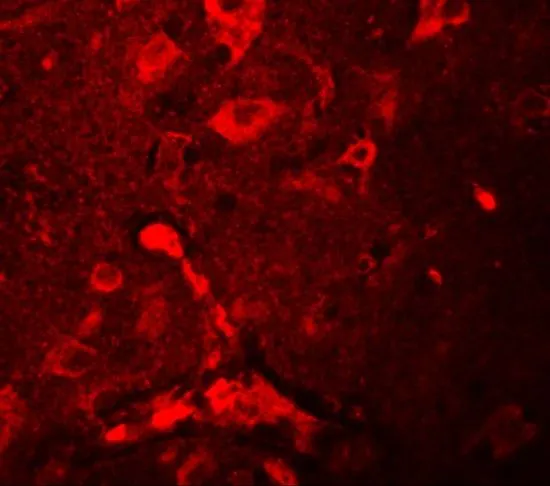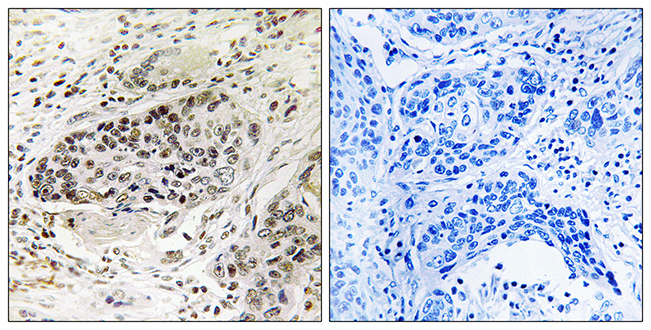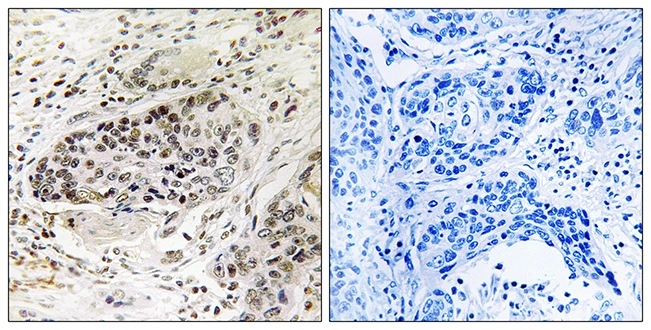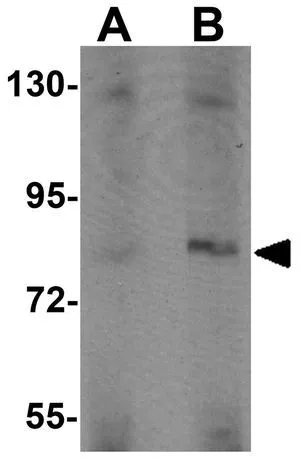
WB analysis of human brain tissue lysate using GTX85144 APBA2 antibody. Working concentration : (A) 1 and (B) 2 μg/ml
APBA2 antibody
GTX85144
ApplicationsWestern Blot, ELISA, ImmunoHistoChemistry, ImmunoHistoChemistry Paraffin
Product group Antibodies
ReactivityHuman
TargetAPBA2
Overview
- SupplierGeneTex
- Product NameAPBA2 antibody
- Delivery Days Customer9
- Application Supplier NoteWB: 1 - 2 microg/mL. IHC-P: 10 microg/mL. *Optimal dilutions/concentrations should be determined by the researcher.Not tested in other applications.
- ApplicationsWestern Blot, ELISA, ImmunoHistoChemistry, ImmunoHistoChemistry Paraffin
- CertificationResearch Use Only
- ClonalityPolyclonal
- Concentration1 mg/ml
- ConjugateUnconjugated
- Gene ID321
- Target nameAPBA2
- Target descriptionamyloid beta precursor protein binding family A member 2
- Target synonymsD15S1518E, HsT16821, LIN-10, MGC:14091, MINT2, X11-BETA, X11L, amyloid-beta A4 precursor protein-binding family A member 2, X11-like protein, adapter protein X11beta, amyloid beta (A4) precursor protein-binding, family A, member 2 (X11-like), mint-2, neuron-specific X11L protein, neuronal munc18-1-interacting protein 2, phosphotyrosine-binding/-interacting domain (PTB)-bearing protein
- HostRabbit
- IsotypeIgG
- Protein IDQ99767
- Protein NameAmyloid-beta A4 precursor protein-binding family A member 2
- Scientific DescriptionAPBA2, a member of the X11 protein family, is a phosphotyrosine-binding domain protein and is a neuronal adapter protein that interacts with amyloid precursor protein (APP) and neuritic plaques in the brains of patients with Alzheimers disease. It stabilizes APP and inhibits production of proteolytic APP fragments including the A beta peptide that is deposited in the brains of Alzheimers disease patients. APBA2 is believed to be involved in signal transduction processes and is also regarded as a putative vesicular trafficking protein in the brain that can form a complex with the potential to couple synaptic vesicle exocytosis to neuronal cell adhesion. Recent reports suggest that it may also be a candidate gene for autism.
- ReactivityHuman
- Storage Instruction-20°C or -80°C,2°C to 8°C
- UNSPSC41116161

